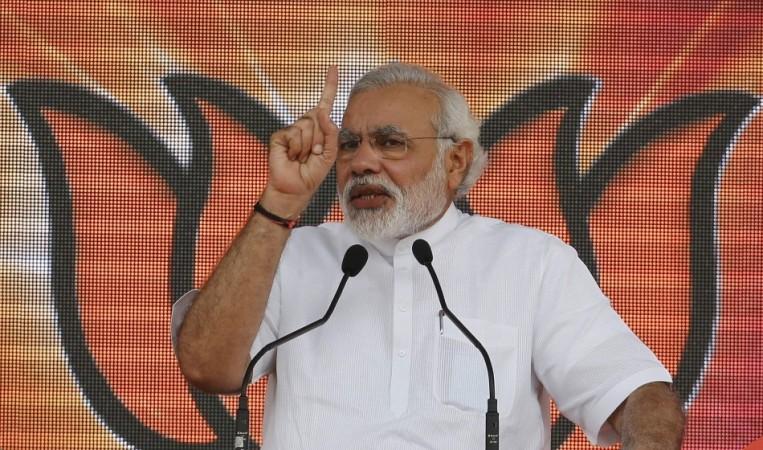
While India's ruling party, Congress seems to be losing its steam, the Bhartiya Janata Party's Prime Ministerial candidate Narendra Modi is finding increased support in the US. This might be a sign that the US lawmakers will have to re-consider the revoking of visa to the Gujarat Chief Minister.
Seen as a Hindu nationalist, Modi was denied a US visa in 2005 for human rights violations in the aftermath of the 2002 Gujarat riots. His tourist and business visa was also revoked, under the Immigration and Nationality Act that makes a foreign government official responsible for severe violations of religious freedom, ineligible for a travel document.
US India Political Action Committee (USINPAC)which is a national, bipartisan body representing the political views of the Indian-American community in the US, earlier on 8 December released a statement titled - "Setting the record straight about Prime Ministerial candidate Narendra Modi."
The statement challenges the controversial bill introduced in the US House of Representatives (H.R 417) that praises the US administration for continuing to deny a US visa and has called it a 'Resolution intended to influence India's upcoming elections by focusing on the 2002 Gujarat riots some 11 years after the fact.'
The lobby group USINPAC further has found support from the Ranking Member Eni Faleomavaega, the top Democrat on the Subcommittee on Asia and the Pacific, who has asked the key leaders in the U.S. House of Representatives to correct the misinformation put forward by H. Res. 417 and has asked Modi to decline a visit to the US unless the State Department takes a stand now.
In a statement to the USINPAC, Ranking Member Eni Faleomavaega said: "While I believe such a response by the State Department is grossly inadequate and an affront to U.S.-India relations, I was informed that "any future visa application put forward by Chief Minister Modi will be carefully considered and adjudicated in accordance with U.S. law.' In my opinion, should Chief Minister Narendra Modi become India's next Prime Minister, he should decline a visit to the United States unless the State Department takes a stand now and informs him in advance of whether or not a visa would be granted should he apply."
"India is a multi-cultural and multi-religious Democracy, where the Leader of the Ruling party is of Italian heritage, the Prime Minister is a Sikh and the Vice President is a Muslim in an 80% Hindu country. Chief Minister Modi is a democratically elected leader and has been elected 3 times by the majority of some 60 million constituents. He may well be India's next Prime Minister and Resolutions like H. Res. 417 do little to help strengthen U.S.-India relations or protect and promote U.S. interests abroad, especially in the Asia Pacific region," he added.
History has shown that even if the US decides to be stubborn about its stance against Modi, the US authorites will not be able to stop him from visiting the country if he becomes the Prime Minister of India
US was forced to give out diplomatic visas to Muammar Gaddafi and Fidel Castro, even though they faced several charges,as US obligations under international treaties has to be respected particularly when it concerns UN and multilateral duties.
The United Kingdom and European Union have already opened their doors for Modi, and the lifting of travel ban in US will indeed uplift his image both on the National and International stage. Earlier in November, British Minister David Cameron,who was on a short visit to India ahead of the Commonwealth meeting in Colombo had stated that he was open to meeting Narendra Modi once he becomes the 'elected leader of the country.'









